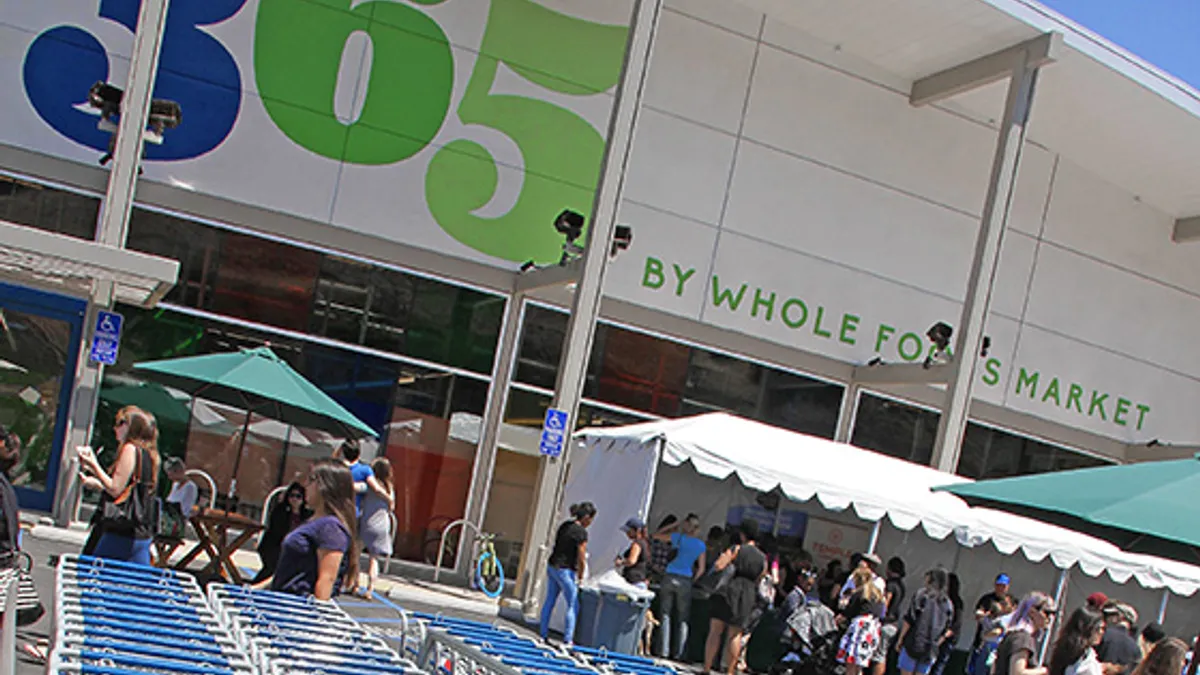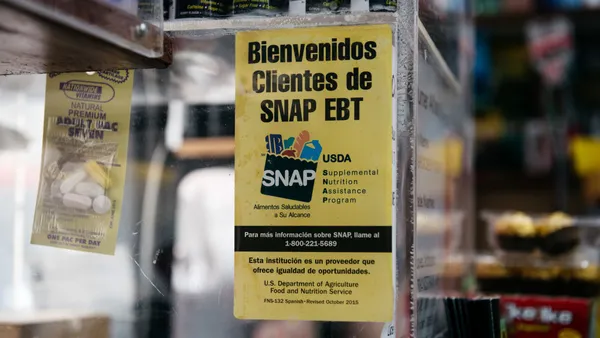Dive Brief:
- Amazon owned-Whole Foods has announced plans to re-brand all existing Whole Foods 365 stores as regular Whole Foods stores before the end of the year, according to Yahoo Finance.
- A spokesperson for Whole Foods said in a statement to Yahoo that all 12 Whole Foods 365 stores will remain open. Other sources familiar with the matter said that in-store signage, back-end distributions and product assortment will change.
- Yahoo reported in January that Whole Foods will discontinue its 365 small-format stores. Since Amazon took over the banner in 2017, nine 365 stores have opened and enthusiasm for the format has waned. Some stores that were intended to open as 365 locations have opened as standard Whole Foods stores instead, Yahoo reported.
Dive Insight:
Since Amazon acquired Whole Foods, the retailer has been trying to get away from its "Whole Paycheck" image with lower prices and Prime discounts. The chain's 365 stores were developed as a response to that problem, but it seems Amazon wants a more unified brand presence, and to quash any implications that there are "less expensive" Whole Foods stores out there.
By dissolving its 365 store brand, Whole Foods is bucking an industry trend as retailers roll out small-scale banners in order to reach new shoppers and markets. Publix just announced three new GreenWise store locations, and says it wants to seek more locations as competition heats up in the southeast. Hy-Vee is currently testing two small-format concepts — Fast & Fresh and Healthmarket — while Meijer is developing urban grocery stores that are a fraction of the size of its supercenters.
Stores like these can save on extraneous costs including labor and rent while increasing productivity and profit margins. They can also help grocers fit into tighter retail spaces in crowded urban and suburban markets, and reach shoppers who may be put off by large traditional stores.
However, not all campaigns to scale down have been successful. Walmart Express stores launched in 2011 and grew to more than 100 locations before the company shut them all down three years ago. Ahold Delhaize also couldn't drum up significant interest among city-dwellers with its Bfresh concept, which folded in late 2017.
For now, Whole Foods aims to control its pricing image across the chain. That wasn't helped by news this month that its prices have gone up recently. The company attributed the move to increased costs from suppliers due to material, labor and transportation — all of which are hitting the industry as a whole.













